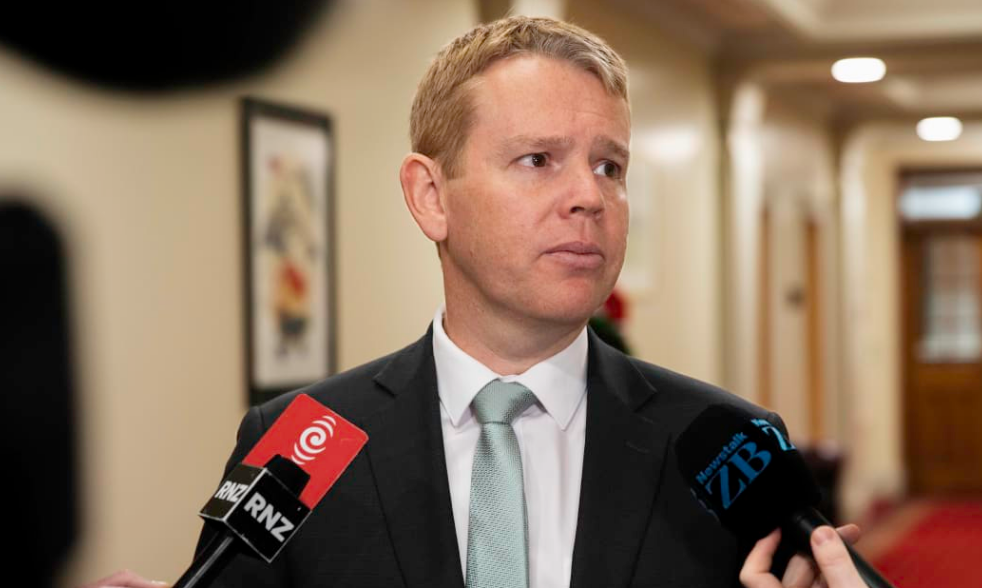
Hipkins said for the last four or five decades, successive Labour and National governments had worked to reconcile past grievances that Māori have legitimately held.
"I think what's disappointing is that for the first time in a generation we're actually seeing a government who want to wind back some of that progress."
The coalition agreements (between National, Act and NZ First parties) that the new government has signed up to take things backwards and te reo Māori is an official language of New Zealand, he said.
"If you look at the MFAT [Ministry of Foreign Affairs and Trade] for example, they issued a memo in the transition period saying that people should stop using te reo Māori. You know ministers have been indicating to government departments that they don't want to see te reo Māori in their documentation - I think that's wrong."
Since the Māori Language Act 2016 was passed successive governments had invested in the capability of government departments to have te reo Māori speakers, but the incoming National government were indicating they wanted to remove the support for that which was a backwards step, he said.
Hipkins said he welcomed a national hui to bring together the many voices of Māori which would be hosted by Kīngi Tūheitia at Turangawaewae Marae in January.
A spokesperson for Kīngi Tūheitia said many Māori were strongly opposed to the government's statements on the Treaty of Waitangi which could undermine decades of hard fought justice.
Hipkins said it was disappointing the new government wanted to wind back progress and thought getting together to discuss it would be a positive thing.
Protest marches and convoys were held around the country on Tuesday in response to Te Pāti Maori's call for action against the new government's policies on co-governance and the Treaty.
Asked if he supported Tuesday's protests, Hipkins said he supports the right to free speech and protest and Māori had a right to protest against the current government.
Te Pāti Māori MPs' swearing in at Parliament on Tuesday appears to have included oaths to King "Harehare", as well as to mokopuna, the Treaty and tikanga Māori.
During the swearing-in, the party's MPs all prefaced their vows with a different vow, first in te reo Māori, then in English.
Hipkins said if people did not follow the format for the oath, it was a matter for the Clerk of the House.
The Clerk of the House of Representatives on Wednesday clarified that Te Pāti Māori MPs would not need to retake the Oath of Allegiance because they had taken the oath properly.
Asked if it was time to take another look at the requirement to swear an oath of allegiance to King Charles III, Hipkins said he was the current head of state.
"So effectively you're swearing allegiance to the New Zealand head of state, whether or not people want the King to be head of state, or whether they want a New Zealand head of state, that's a legitimate question."
So far New Zealanders had not indicated they wanted to move away from having the monarchy as the country's head of state, he said.
"I'm on record as saying that's something that should happen in time if that's what Kiwis want then that's what Kiwis should get."
It was good to see more people taking the oath in te reo Māori, he said.
"I think the fact that increasing numbers of people were taking the oath in te reo Māori, including a number of Pākehā members of Parliament on both sides of the House, that's something that's really positive and you know I encourage people to do that.
"I haven't had the confidence to do that myself, one day hopefully I'll be in a position to do that."
Hipkins on accusation of 'workarounds'
Finance Minister Nicola Willis has accused the previous government of finding "workarounds" to hide the scale of short-term funding saying changes may be made to the Public Finance Act to safeguard against these kinds of changes - which was "upholding the letter of the law but not necessarily its spirit" - in future.
But Hipkins said the information was contained in the pre-election fiscal update.
"If Nicola Willis doesn't have the concentration span to read the Budget documents from one end to the other and wants someone to give her a nice little summary for it, that's probably really more of an issue for her to work on."
Hipkins said as Finance Minister she would need to read and understand a number of big documents.
It was a distraction by Willis because she could not make her numbers add up as the government's plans were unaffordable, he said.
He denied his government left any nasty surprises for the incoming administration.
"Look, cost escalations are a fact and they always have been. When we became the government in 2017 we inherited a number of projects from the last government, Transmission Gully springs to mind, where we had to put extra money in to get those projects finished because the costs had gone up."
Labour made provision for cost escalations for projects when it was in government, and the fact that National had not made those provisions was one of the reasons why their plans were unaffordable, he said.












